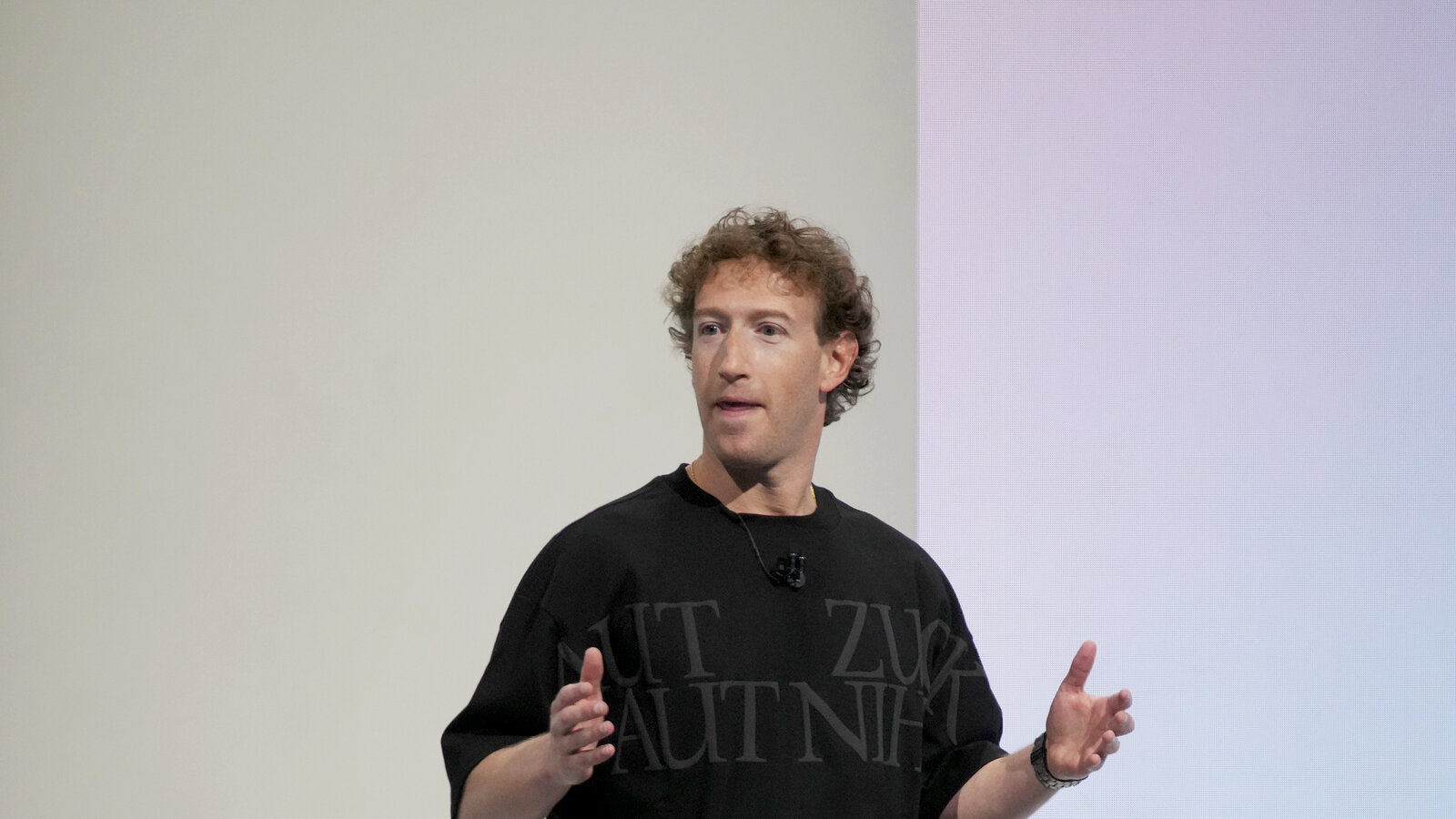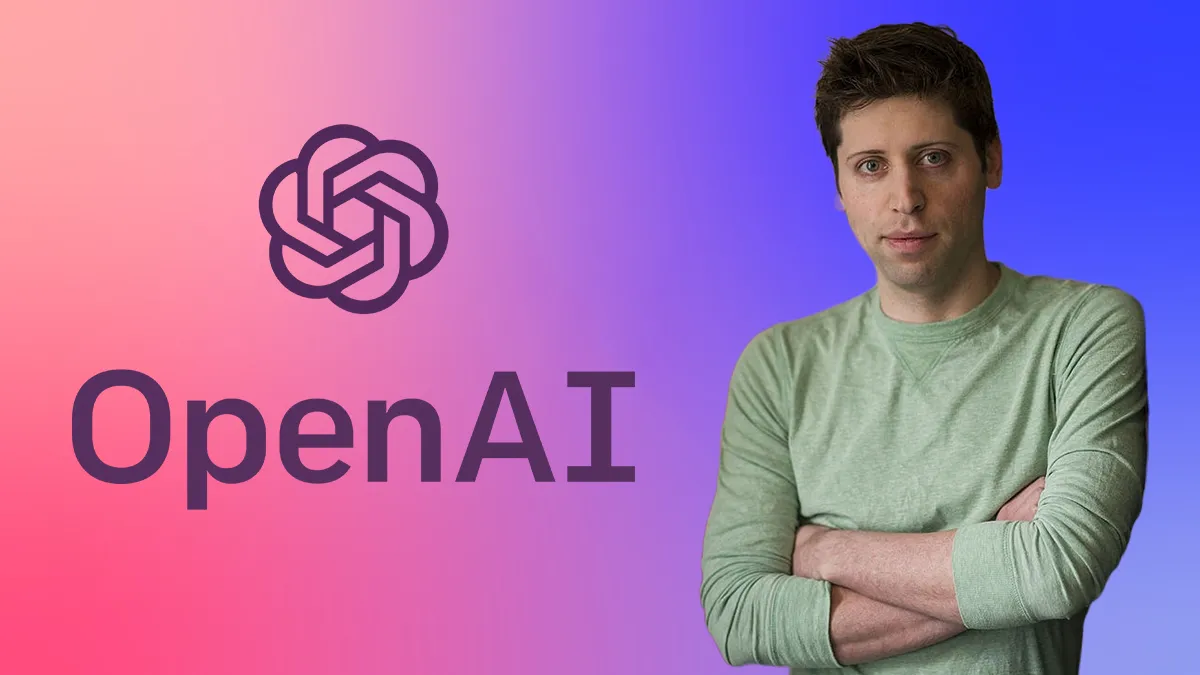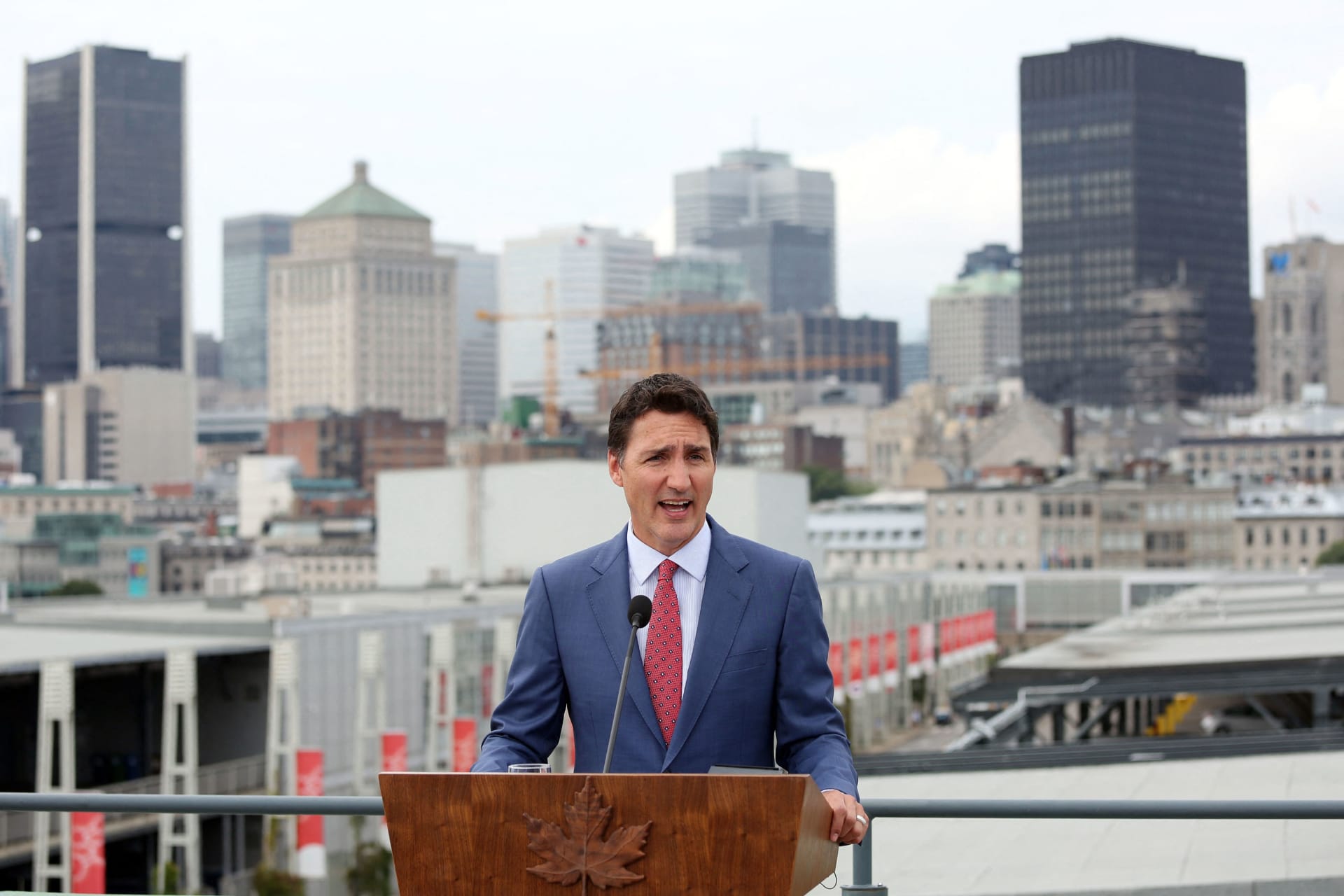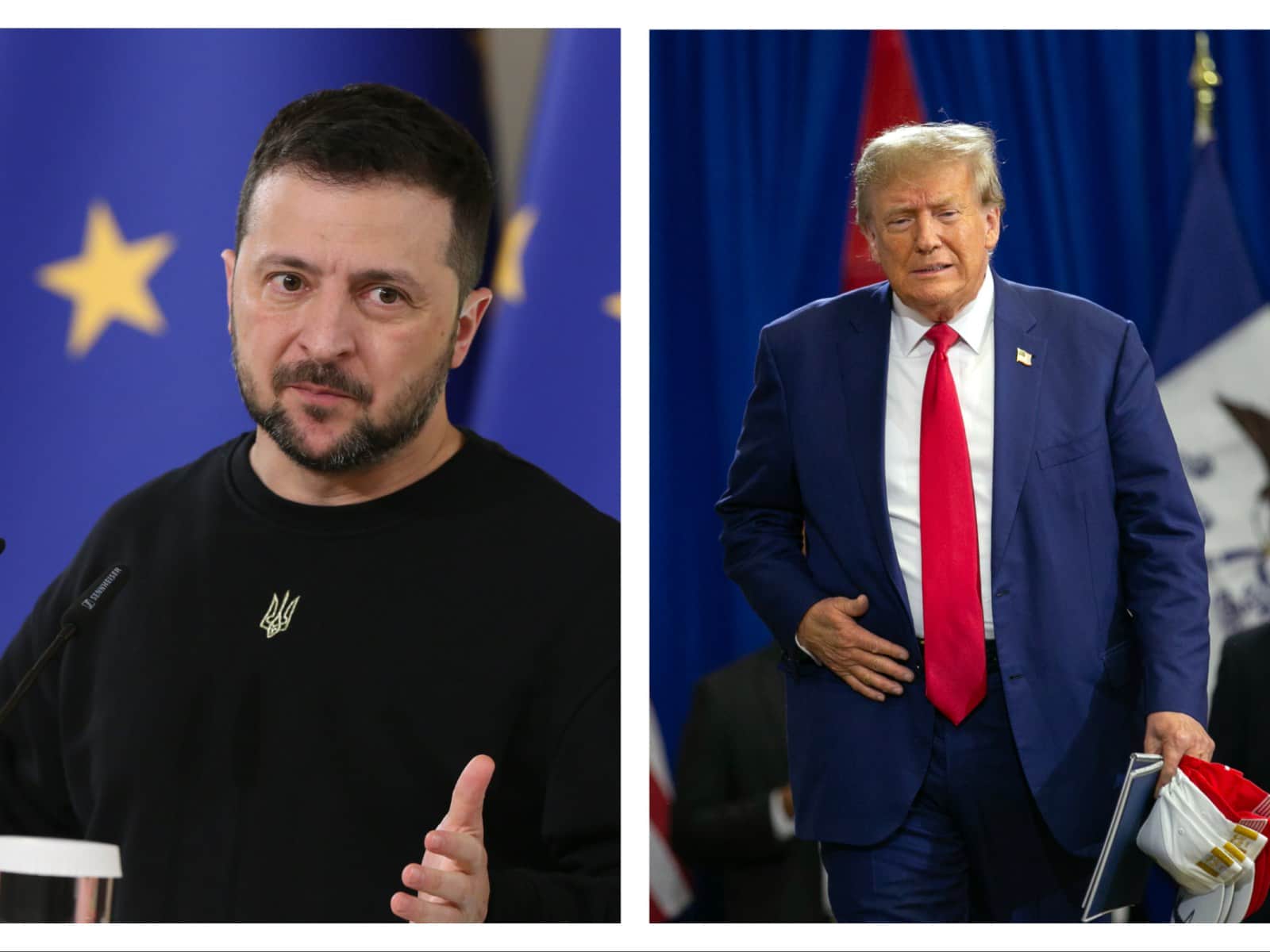Zuckerberg And Trump: A New Era For Facebook And Politics

Table of Contents
The Trump Presidency and Facebook's Content Moderation Challenges
The Trump presidency presented unprecedented challenges to Facebook's content moderation policies. The sheer volume of misinformation, hate speech, and inflammatory rhetoric associated with the administration overwhelmed Facebook's existing systems. The platform struggled to balance its commitment to free speech with the need to prevent the spread of harmful content.
- Examples of controversial posts and ads: Numerous instances arose where posts and ads promoting conspiracy theories, inciting violence, or spreading demonstrably false information were allowed to proliferate, raising serious concerns about Facebook's responsibility in curating its platform.
- Facebook's evolving policies regarding political speech: Facebook's policies regarding political speech evolved throughout the Trump era, often appearing reactive rather than proactive. The constant adjustments demonstrated the platform's struggle to effectively manage the complexities of political content moderation.
- The role of algorithms in amplifying divisive content: Facebook's algorithms, designed to maximize engagement, inadvertently amplified divisive and polarizing content, further contributing to the spread of misinformation and the erosion of trust.
- Criticism of Facebook's response to these challenges: Facebook faced intense criticism for its perceived slow and inadequate response to these challenges. Critics argued that the platform prioritized profits over responsible content moderation.
- The impact on public trust: The controversies surrounding content moderation significantly damaged public trust in Facebook's ability to act as a responsible steward of information, impacting its credibility as a news source and platform for political discourse.
Cambridge Analytica and the Erosion of Trust
The Cambridge Analytica scandal further eroded public trust in Facebook. This scandal involved the harvesting of millions of Facebook users' data without their consent, which was then allegedly used to target voters during the 2016 US election.
- How Cambridge Analytica harvested user data: Cambridge Analytica exploited Facebook's APIs to gather personal data from millions of users, compromising their privacy and potentially influencing the election outcome.
- The implications for the 2016 US election: The use of this data to micro-target voters raised serious concerns about the integrity of the election process and the influence of data-driven political campaigns.
- Subsequent regulatory scrutiny and fines: The scandal resulted in significant regulatory scrutiny and fines for Facebook, highlighting the platform's failures in protecting user data.
- The long-term effects on user trust in Facebook’s handling of political data: The long-term impact of Cambridge Analytica continues to be felt, with many users expressing concerns about Facebook's ability to safeguard their data and maintain user privacy, particularly concerning political data.
The Evolution of Political Advertising on Facebook
The Trump campaign's innovative use of Facebook advertising fundamentally shifted the landscape of political campaigning. Microtargeting techniques, previously employed to a lesser extent, became a central strategy.
- The use of microtargeting techniques: The Trump campaign's sophisticated use of microtargeting allowed for highly personalized ad campaigns tailored to specific demographics and interests, enhancing their effectiveness.
- The effectiveness of Facebook ads in influencing voters: The success of the Trump campaign's Facebook advertising strategy demonstrated the power of targeted advertising in influencing voter behavior.
- Increased regulation and transparency measures for political ads: Following the 2016 election, increased regulation and transparency measures were implemented to enhance accountability and address concerns about the influence of targeted political advertising.
- The ongoing debate about the ethical implications of targeted advertising in political campaigns: The ethical implications of using targeted advertising to manipulate voters remain a subject of ongoing debate.
- The rise of "dark posts" and their impact: The use of "dark posts," ads that are not publicly visible, raised further concerns about transparency and accountability in political advertising.
Zuckerberg's Testimony and Public Accountability
Mark Zuckerberg's appearances before Congress and other public forums were pivotal moments in addressing Facebook's role in politics. These testimonies exposed the platform to intense public scrutiny.
- Key takeaways from his testimonies: Zuckerberg's testimonies highlighted the complexities of content moderation, the challenges of combating misinformation, and the need for greater transparency and accountability.
- Public perception of Zuckerberg's responses: Public perception of Zuckerberg's responses varied, with some praising his willingness to testify while others criticized his evasiveness.
- The impact of these appearances on Facebook's policies and practices: Zuckerberg's testimonies led to some changes in Facebook's policies and practices, although significant challenges remain.
- The ongoing debate surrounding the regulation of social media platforms: These events fueled the ongoing debate regarding the regulation of social media platforms and their role in shaping political discourse.
The Lasting Impact on the Political Landscape
The relationship between Zuckerberg and Trump has had profound and lasting consequences on the political landscape.
- The changing nature of political campaigning: Social media, particularly Facebook, has fundamentally changed the nature of political campaigning, emphasizing targeted advertising, micro-influencers, and online engagement.
- The spread of misinformation and its impact on elections: The spread of misinformation and disinformation on social media poses a significant threat to democratic processes.
- Increased political polarization: Social media platforms have contributed to increased political polarization, creating echo chambers that reinforce existing biases and limit constructive dialogue.
- The role of social media in shaping public opinion: Social media plays a powerful role in shaping public opinion, influencing voter behavior and impacting electoral outcomes.
- The future of political advertising and regulation: The future of political advertising and regulation remains uncertain, with ongoing debates regarding transparency, accountability, and the potential for manipulation.
Conclusion
The relationship between Zuckerberg and Trump has ushered in a new era for Facebook and politics, one characterized by significant challenges and lasting consequences. The controversies surrounding content moderation, political advertising, and data privacy have fundamentally reshaped the political landscape, raising critical questions about the role of social media platforms in democracy. The ongoing struggle to balance free speech with the need to prevent the spread of misinformation and disinformation underscores the need for continued vigilance and critical examination of Facebook's role in shaping political discourse. To learn more, explore further research on "Facebook and politics," "Zuckerberg's role in politics," and "the impact of social media on elections." The future of democracy hinges, in part, on our collective ability to navigate these complex challenges responsibly.

Featured Posts
-
 The Diverging Paths Of Altman And Nadella The Future Of Ai At Stake
Apr 30, 2025
The Diverging Paths Of Altman And Nadella The Future Of Ai At Stake
Apr 30, 2025 -
 Vignan University And Schneider Electric Partner For Technological Advancement In Vijayawada
Apr 30, 2025
Vignan University And Schneider Electric Partner For Technological Advancement In Vijayawada
Apr 30, 2025 -
 Hl Tetmd Knda Ela Alwlayat Almthdt Thlyl Tsryhat Tramb Alakhyrt
Apr 30, 2025
Hl Tetmd Knda Ela Alwlayat Almthdt Thlyl Tsryhat Tramb Alakhyrt
Apr 30, 2025 -
 Blue Ivy And Rumi Carters Twin Like Appearance At The 2025 Super Bowl
Apr 30, 2025
Blue Ivy And Rumi Carters Twin Like Appearance At The 2025 Super Bowl
Apr 30, 2025 -
 Chomu Tramp I Zelenskiy Sidili Okremo Rozkrito Podrobitsi Zustrichi
Apr 30, 2025
Chomu Tramp I Zelenskiy Sidili Okremo Rozkrito Podrobitsi Zustrichi
Apr 30, 2025
Latest Posts
-
 Leo Carlssons Two Goals Not Enough Ducks Lose To Stars In Overtime
Apr 30, 2025
Leo Carlssons Two Goals Not Enough Ducks Lose To Stars In Overtime
Apr 30, 2025 -
 Neal Pionk News Highlights And His Impact On The Team
Apr 30, 2025
Neal Pionk News Highlights And His Impact On The Team
Apr 30, 2025 -
 Neal Pionk Contract Situation Trade Speculation And News
Apr 30, 2025
Neal Pionk Contract Situation Trade Speculation And News
Apr 30, 2025 -
 Analyzing Neal Pionks Play News Highlights And Statistics
Apr 30, 2025
Analyzing Neal Pionks Play News Highlights And Statistics
Apr 30, 2025 -
 Neal Pionk Recent Performance Future Prospects And News
Apr 30, 2025
Neal Pionk Recent Performance Future Prospects And News
Apr 30, 2025
